Hezbollah uses Nasrallah funeral to show it is still alive
As new Hezbollah leader Naim Qassem spoke about how Nasrallah’s cause can never be defeated, Israel taunted its enemy. The ground shook as Israeli fighter jets flew low during the funeral in Beirut and video of the September killing of Nasrallah was released.
As tens of thousands of people gathered for the funeral of slain Hezbollah leader Hassan Nasrallah in Beirut on Sunday, its current chief vowed to continue fighting Israel as the group projected its power despite an Israeli offensive that has left it weakened and in disarray.
Hezbollah leader Naim Qassem said in a speech broadcast to a Beirut stadium filled with mourners that the organisation will continue down the path set by Nasrallah.
“We will complete this path even if we are all killed,” he said. “The resistance has not ended.” He also railed against the influence of the U.S., which brokered the November ceasefire between Hezbollah and Israel that brought more than a year of fighting to an end.

“We do not accept that America controls our country,” he said. “We say to America, you will not achieve in politics what you did not achieve in war.” For Hezbollah, the massive funeral was aimed at showing Lebanon and the world that it can still maintain security control and organise a massive public display of support, as it tries to recalibrate after losing some of its capabilities and legitimacy in its conflict with Israel.
“The funeral will be a visual effort to remind everyone that the group remains a powerful force,” said Julien Barnes-Dacey, Middle East and North Africa program director at the European Council on Foreign Relations.
As Qassem spoke about how Nasrallah’s cause can never be defeated, Israel took the opportunity to taunt its enemy. The ground shook as Israeli jet fighters flew in formation low over Beirut during the funeral.
Israeli jets flying EXTREMELY low during Hassan Nasrallah’s commemoration.
— Nada Maucourant Atallah (@MaucourantNada) February 23, 2025
Mourners responded with: “Death to Israel,†“death to Israel,†while pointing at the sky. pic.twitter.com/Pt0rqdgrOQ
“You specialise in funerals — and us in victories,” said Israel’s defence minister, Israel Katz, about the purpose of the flyover.
“Israeli air force planes currently flying over Beirut during the funeral of Hassan Nasrallah are sending a clear
message: Anyone who threatens to destroy Israel and attacks Israel — this will be their end,” Katz said.
Israel also used the funeral to release footage of the September 27 elimination of Nasrallah. The footage shows a fighter jet dropping at least seven bombs in succession.
The munition was part of 82 bombs dropped on Hezbollah’s underground command centre in Beirut, where Nasrallah and other senior officials were killed. A massive series of explosions is seen in the Dahieh district, lasting only a few seconds.

Analysts say Israel’s weakening of Hezbollah and the killing of Nasrallah has left the group diminished as a military force that can threaten Israel and as a political force within Lebanese politics. It is also unclear if the group can fully rebuild without Nasrallah, who was a unique figure able to mobilise support across the region.
Nasrallah was a charismatic politician and fierce Islamist ideologue who turned the Shia militant group into one of the world’s most powerful nonstate armed forces with the backing of Iran. The Arab and wider Muslim world, including people who disdained him, tuned in closely to his lengthy, sharp speeches more than they did regional state leaders.
“They lost their top two political leaders, their military command council has been decimated, and there is no personality inside Hezbollah who can unite the party behind him,” said Randa Slim, a fellow at the Johns Hopkins University-based Foreign Policy Institute.

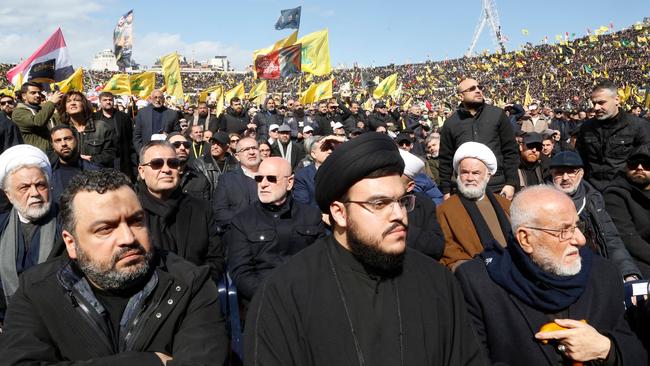
Slim said many Nasrallah supporters were more loyal to him than the party itself.
“When Nasrallah died, it felt like the end of the world,” said a funeral-goer from Beirut named Batoul. “He was the one protecting us and standing up for us when no one else was.” The service included a march to a burial site in Beirut where Nasrallah would be laid to rest. Hundreds of Hezbollah operatives attended the funeral, including uniformed military staff, though none was seen armed. The Lebanese military provided armed security around the site.
Beirut was overwhelmed by visitors, many of whom flew in from other countries, including Iraq and Iran. Hezbollah’s yellow and green flags flew from cars and buildings, and billboards bearing Nasrallah’s face paid tribute. Streets away from the funeral were quiet and many shops were closed. Seas of mourners dressed in black cried, chanted and ritually thumped their chests in grief at the memorial site, held in a packed sports arena that seats around 50,000.
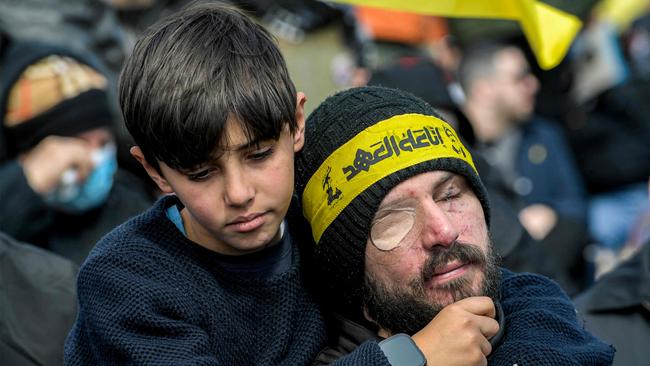
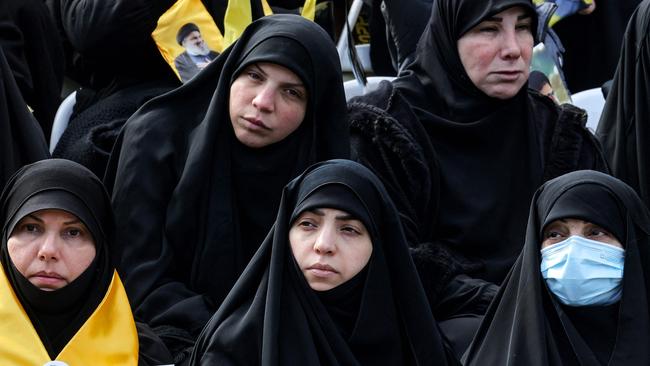
Nasrallah was killed when Israel’s air force struck a bunker with over 80 tons of bombs in which he was meeting with Hezbollah senior officials. The attack used a series of timed, chained explosions to penetrate the underground facility.
Other Hezbollah senior officials were killed by Israel during a year of fighting between the parties. They included Hashem Safieddine, Nasrallah’s cousin, who succeeded him for a few weeks before he too was assassinated. He was also memorialised Sunday.
While divisive within Lebanon and across the Middle East, many Shia Lebanese saw Nasrallah as a symbol of advocating for the sect in Lebanon’s complex confessionalist political system in which Shia have long been under-represented. Many Lebanese Shia also commended him for standing up to Israel and the U.S. To his supporters, Nasrallah became an almost messianic figure, commanding loyalty of tens of thousands of devout Shia Muslims, and ascending to become the single-most important figure in Iran’s array of allied militias.
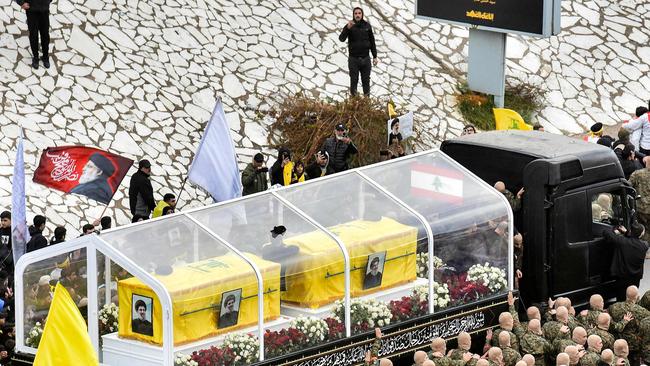
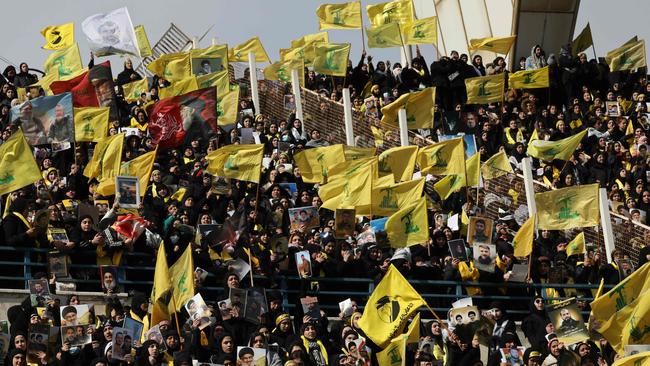
Murtada Mousawi, who arrived in Beirut last week from southern Iraq to attend the Nasrallah funeral, said Nasrallah can’t be replaced. “His soul and legacy is enshrined in millions of people,” Mousawi said, especially those who support Iran’s web of allied militias around the region, which includes Iraqi militias and Yemen’s Houthi rebels.
To his enemies, he was an antisemitic terrorist who led a movement responsible for hundreds of American and Israeli deaths.
When Hezbollah, a U.S.-designated terrorist group, in 2000 pushed Israel from Lebanon after 15 years of occupation, for many across the Middle East, it cast Nasrallah as among the region’s most effective and dangerous strategists.
He also oversaw Hezbollah’s transformation from a militia that operated in small cells into a political party and a militant network with a global reach. A delegation including senior Iranian officials attended the funeral, including Foreign Minister Abbas Araghchi, according to Iranian state media. The Houthis also sent a delegation.
Hezbollah under Nasrallah’s command began firing at Israel after the Hamas-led Oct. 7, 2023, attacks on Israel, in what Hezbollah has said was in defence of the Palestinian cause. Tit-for-tat exchanges with Israel eventually spiralled into intense conflict that killed dozens of Israelis and thousands of Lebanese, including combatants and civilians on both sides.
Lebanon’s recently elected president, Joseph Aoun, met with Iranian officials in Beirut on Sunday, saying Lebanon has paid a heavy price for the Palestinian cause, is weary of conflict and seeks national unity. Iran’s Speaker of parliament Mohammad Bagher Ghalibaf told the Lebanese president that Tehran is ready to collaborate with Arab countries in rebuilding what was destroyed by Israel’s military during the war, and that it supports Lebanese decision-making free from external interference, according to the Lebanese presidency.
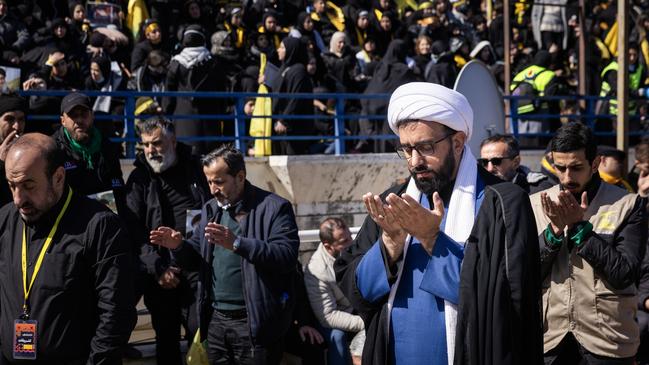
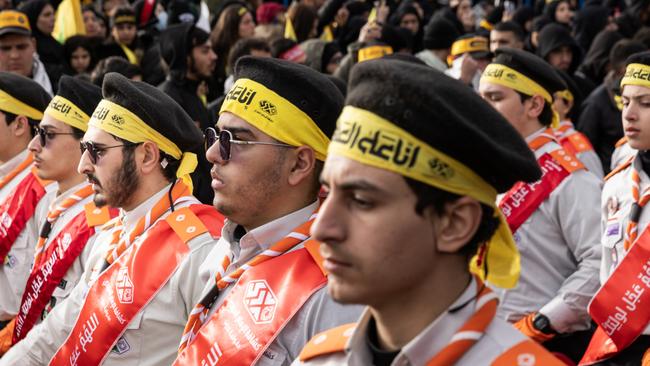
As mourners gathered at the funeral site, Israel’s military struck areas of southern Lebanon where it says Hezbollah was operating.
Last week, Israel’s military said it would be keeping troops in five locations in southern Lebanon, past a deadline to remove its troops as part of a ceasefire deal.
Qassem, Hezbollah’s secretary-general, used his speech to call out Israel’s failure to withdraw and its continued bombing of Lebanon, which he called “occupation” and “a blatant aggression.” Meanwhile, Hezbollah has sent conflicting signals in the past few weeks about its future strategic direction, said David Wood, a senior analyst for Lebanon at International Crisis Group, a think tank. On the one hand, the group has made some striking political concessions, including during the elections of a new president and prime minister.
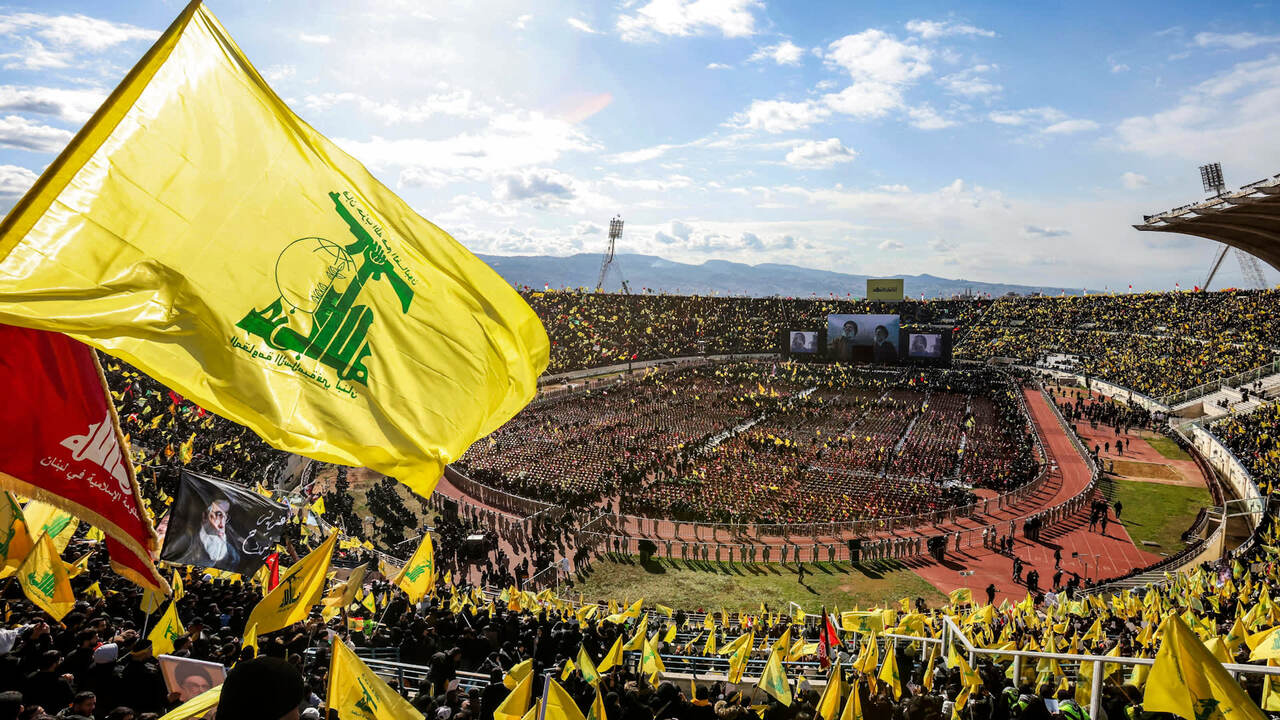
Lebanon was previously deprived of a president for two years. Hezbollah, which controls a large bloc of Lebanese parliament, had obstructed the election of any other candidate by withdrawing from about a dozen parliament sessions, depriving parliament of a quorum. Last month, Hezbollah and its allies voted in favour of Aoun as the country’s next president after the candidate it had initially preferred dropped out of the race.
Lebanese state authorities have also played a bigger role in cracking down on Hezbollah, including by thoroughly inspecting commercial flights for funds bound for the group, as well as detaining pro-Hezbollah activists for intimidating local media.
On the other hand, Hezbollah has indicated complete disarmament, which the truce calls for, is off the table.
“The issue of Hezbollah’s weapons looms as one of several potential spoilers for political progress in Lebanon,” Wood said.
The Wall Street Journal


